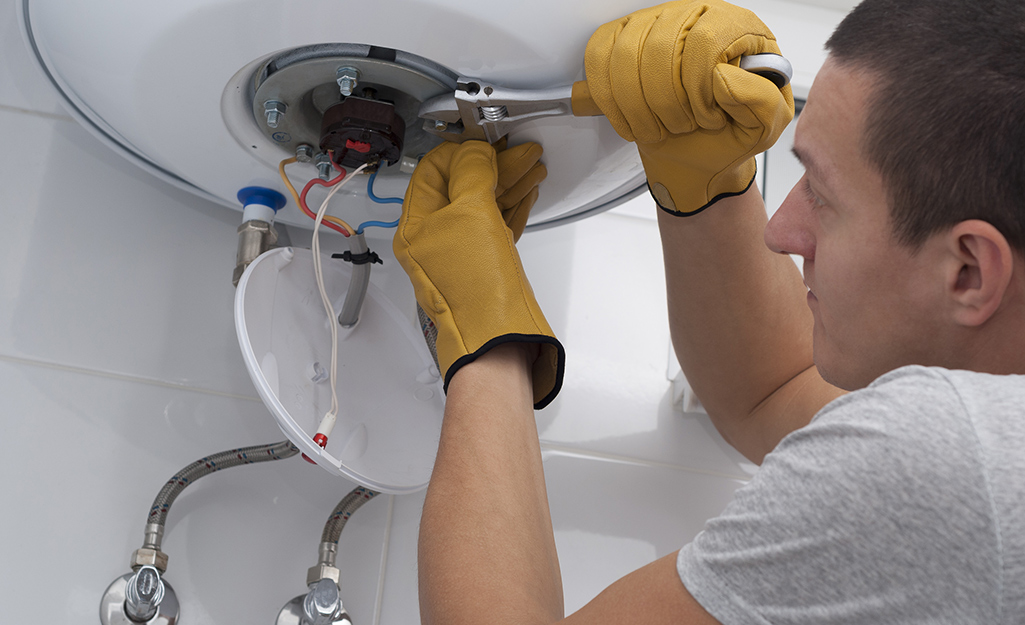Dealing with the Typical Water Heater Crisis Scenarios
Dealing with the Typical Water Heater Crisis Scenarios
Blog Article
What are your concepts about Warning Signs You Need Water Heater Repairs?

A water heater is one of the most vital basic home appliances that can be located in a home. With hot water heater, you don't require to go through the stress and anxiety of heating water by hand each time there is a need to wash, do the laundry, or the recipes. Nonetheless, there is constantly a possibility that your water heater would act up similar to many mechanical devices.
It is very important to keep in mind any kind of little breakdown and also tackle it promptly prior to points get out of hand. The majority of times, your water heater starts to malfunction when there is an accumulation of debris as a result of constant usage. As a precaution, routine flushing of your water heater is advised to avoid sediment accumulation and stop functional failing.
Usual water heater emergencies and also just how to manage them
Insufficient warm water
Dealing with an inadequate supply of hot water can be irritating. It may be that the water heater can't support the hot water need for your house. To take care of this trouble, you might attempt to change your heater's temperature dial and wait on a few minutes. You can ask for the help of a specialist plumber if the problem lingers. Conversely, you can upgrade your water heater to one with a larger capacity.
Varying water temperature.
Your water heating unit could start producing water of various temperature levels usually ice hot or chilly hot. There may be a requirement to replace either the thermostat or the heating device of your water heating system.
Dripping water heater storage tank.
In this situation, you need to turn off your water heater, permit it to cool down, as well as meticulously look for the source of the problem. At times, all you require to do is to tighten up a couple of screws or pipeline connections in cases of minor leakages. If this doesn't function and also the leakage lingers, you might need to use the services of a technician for an appropriate substitute.
Stained or odiferous water
When this takes place, you require to know if the issue is from the water or the storage tank source. If there is no funny smell when you run cold water, then you are specific that it is your water heating unit that is damaged. The stinky water can be created by corrosion or the build-up of microorganisms or debris in the water heating unit storage tank.
Verdict
Some home owners ignore little caution and also minor faults in their hot water heater unit. This only results in additional damage and also a feasible full break down of your appliance. You must take care of your water heater faults as quickly as they come near avoid even more expenditures and also unnecessary emergency difficulties.
With water heaters, you do not need to go through the stress and anxiety of home heating water by hand every time there is a need to take a bathroom, do the washing, or the dishes. It may be that the water heating unit can not sustain the warm water demand for your apartment. Your water heater can begin producing water of different temperature levels generally ice hot or chilly hot. If there is no amusing odor when you run chilly water, after that you are certain that it is your water heating unit that is defective. The odiferous water can be created by rust or the accumulation of microorganisms or sediments in the water heating unit tank.
Common Water Heater Issues and What You Should Do
What Type of Water Heater Do You Have?
Before we begin it’s first important that you identify the type of water heater you have on your property. There are two main types of water heaters out there: conventional and high efficiency.
Both of these types of products typically use either gas or electricity to heat power. There are also solar water heaters that use a thermal collector on the roof or yard to heat the water.
While these models are not as common, they can cut heating costs in half. In this article, we will focus on conventional and high efficiency.
How Do My Electric and Gas Water Heater Work?
Though they look similar, electric and gas water heaters work very differently. It’s important to know their basic function because often problems can be specific to the heating source.
In the electric model, a thermostat on the side of the machine detects the temperature of the water in the tank. When the temperature needs to rise electricity flows to a heating element suspended in the water.
Gas models also use a thermostat device — typically with a mercury sensor at the tip and an additional sensor called a thermocouple. The thermocouple detects whether the pilot light is on and controls the flow of gas.
When the thermostat drops below the appropriate level gas is released which becomes ignited by the pilot light. The flame heats the bottom of the water tank which causes hot water to rise and cold water to drop.
This natural circulation continues until the water reaches the desired temperature. Then, the thermostat triggers the gas control valve to shut off the flow of gas.
What Are the Most Common Issues and How Do You Fix Them?
https://happyhiller.com/blog/common-water-heater-issues-and-what-you-should-do/

I recently found that blog entry on Is Your Water Heater Leaking? when surfing the internet. Loved our entry? Please share it. Help somebody else discover it. We enjoy reading our article about Common Hot Water Heater Problems.
Connect for clarity. Report this page